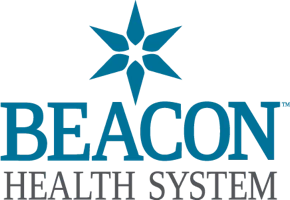For healthcare organizations, ensuring that revenue flows smoothly from patient to provider is both an operational and strategic priority. The process that governs this flow – known as Revenue Cycle Management (RCM), directly affects the financial health, compliance, and patient experience of your organization.
Effective RCM integrates financial, administrative, and clinical functions to ensure providers are accurately and promptly reimbursed for the care they deliver. In an era of shrinking margins and complex payer rules, optimizing your RCM isn’t optional; it’s essential.
Why healthcare RCM matters
Healthcare RCM is about more than billing. It’s about creating a closed-loop financial system that starts before a patient visits and continues through reimbursement and reporting.
Every missed eligibility check, coding error, or unworked denial represents leakage: preventable loss of earned revenue. A robust RCM strategy helps healthcare providers:
- Reduce denials and payment delays
- Improve cash flow and net revenue
- Maintain compliance with payer and regulatory requirements
- Enhance patient satisfaction through transparency and accuracy
With new regulations, value-based care models, and patient-as-payer trends reshaping healthcare finance, RCM has evolved into a mission-critical discipline that requires both expertise and technology.
Core steps of revenue cycle management
While workflows vary by organization, best-practice RCM processes share the same foundational stages:
1. Patient registration and pre-visit data capture
Accurate collection of demographic, insurance, and referral details lays the groundwork for clean claims. Automated verification tools and digital intake systems now minimize manual entry errors and flag inconsistencies early.
2. Eligibility and benefits verification
Verifying coverage before service is essential. Real-time eligibility APIs, prior-authorization automation, and integrated payer rules engines ensure the patient’s benefits are active and appropriate for the planned service.
3. Charge capture, coding, and claim submission
Accurate charge capture and compliant coding determine reimbursement success. Computer-Assisted Coding (CAC) and AI-driven coding audits help identify missing documentation, improper modifiers, or mismatched diagnosis codes before submission.
4. Denial prevention and management
Modern denial management is proactive. Predictive analytics identify root causes, while machine learning models flag high-risk claims before submission. Automated work queues route denials to the right specialists, accelerating rework and appeals.
5. Patient billing and collections
With rising patient responsibility, transparent communication is vital. Digital statements, text reminders, and flexible payment options improve the patient’s financial experience and increase recovery rates.
How RCM differs from medical billing
Medical billing is just one component of RCM, focused mainly on claim submission and payment posting. Revenue Cycle Management encompasses the entire lifecycle of a patient encounter, from scheduling and pre-authorization through denial resolution, collections, and reporting.
In other words, medical billing executes transactions; RCM manages strategy, compliance, and performance across the entire revenue ecosystem.
The importance of medical coding and billing in RCM
Coding and billing accuracy directly drive financial outcomes. Each claim must meet payer documentation and coding standards to avoid denials and audits.
Ongoing coder education, automated coding validation, and audit-ready compliance protocols are now standard for best practices. AI-assisted quality checks are also reducing human error while improving speed and accuracy.
Key RCM metrics to track
Data-driven RCM enables smarter decision-making. Common metrics used by high-performing healthcare organizations include:
- Clean Claim Rate: Percentage of claims accepted on first submission
- Denial Rate: Percentage of claims denied by payers
- Days in Accounts Receivable (A/R): Average time from claim submission to payment
- Net Collection Rate: Measure of actual collections vs. expected reimbursement
- Cost to Collect: Total cost of RCM operations as a percentage of revenue
Monitoring these indicators helps leaders identify process gaps, benchmark performance, and measure ROI on technology investments.
The role of AI and automation in modern RCM
AI is no longer futuristic: it’s foundational to today’s best-in-class RCM operations. Artificial Intelligence (AI), Robotic Process Automation (RPA), and predictive analytics are being applied to every stage of the cycle to:
- Identify and correct claim errors before submission
- Predict and prevent denials
- Automate repetitive back-office tasks
- Forecast cash flow and payment trends
- Optimize patient engagement for collections
This blend of automation and human expertise, sometimes called “intelligent RCM” allows staff to focus on exceptions, appeals, and strategic initiatives rather than manual rework.
Why use a specialized RCM partner
Implementing and maintaining an advanced RCM strategy requires deep expertise, scalable technology, and continuous regulatory awareness. Partnering with an experienced RCM vendor can deliver measurable financial and operational improvements.
Benefits include:
- Higher clean-claim rates and faster payment cycles
- Reduced administrative burden and error risk
- Real-time compliance monitoring
- Enhanced visibility into performance metrics
- Increased net revenue and patient satisfaction
Optimize your revenue cycle with EnableComp
At EnableComp, we help healthcare organizations maximize reimbursement accuracy, reduce denials, and accelerate cash flow through data-driven automation and deep domain expertise.
Our e360 RCM® platform integrates seamlessly with existing systems, combining intelligent automation, AI-powered analytics, and expert human oversight to optimize complex claims management.
We’ve helped over 1,000 hospitals and health systems recover more than $5 billion in revenue, ensuring providers get paid for the work they do while maintaining full compliance.
Contact EnableComp today for a free consultation and see how our intelligent revenue cycle solutions can transform your organization’s financial performance.





























